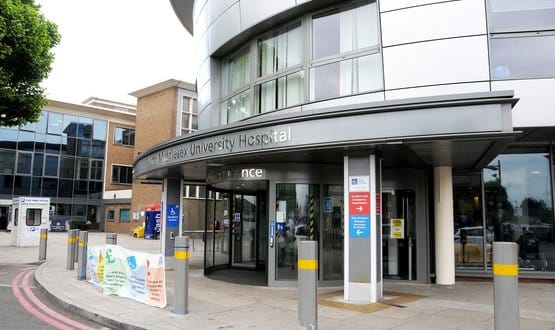Fast follower Royal Oldham digitises dietetic referrals
- 20 August 2019

The dietetic team at Royal Oldham Hospital has switched to digital referrals to reduce paper and improve patient safety.
The team currently receive 180 adult referrals every month and, though they arrive electronically, they are processed manually.
The programme involves standardising and digitising dietetic documentation at the hospital which is part of Pennine Acute Hospitals NHS Trust, a fast follower of Salford Royal NHS Foundation Trust, which is one of the Global Digital Exemplars (GDEs).
Collectively, the two trusts are known as the Northern Care Alliance (NCA) NHS Group.
Once fully rolled out, the digital referrals programme aims to reduce the manual recording and duplication of dietetic forms and processes.
To achieve this, documentation template forms will be introduced into one structured dietetic clinical note which will be readily available to other departments and filed within the electronic patient record.
It’s hoped the programme will significantly reduce the time spent manually transcribing referrals.
Dr Georges Ng Man Kwong, CCIO at the trust, said: “Digitising our clinical pathways will streamline patient care in a number of specialties and really make a difference to both staff and patients.
“This is one of a number of projects within the GDE fast follower programme, which will support the transformation of our clinical services across the Northern Care Alliance.”
Once a patient is discharged, dietetic notes will be pulled together electronically and forwarded to the relevant health and care provider.
This will reduce the amount of time it takes to process paperwork and streamline the dietetic pathway. It will also reduce the need to store dietetic paper records within the department.
Nicola Bielby, site lead for dietetics at The Royal Oldham Hospital, said: “Sometimes, during and after a consultation with a patient, we may have to manually complete several different forms. These often involve entering information twice and searching for information. This can be very time consuming.
“We’re really looking forward to being able to complete this so much more quickly, enabling us to spend more time with our patients.”
Royal Oldham also recently launched a pilot to explore how video technology can aid translation in ante-natal clinics as part of the fast follower programme.
A digital tool to detect delirium and dementia has also been rolled out across Pennine Acute Hospitals using a blueprint from Salford Royal, which was released as part of the first wave of digital blueprints in February.




